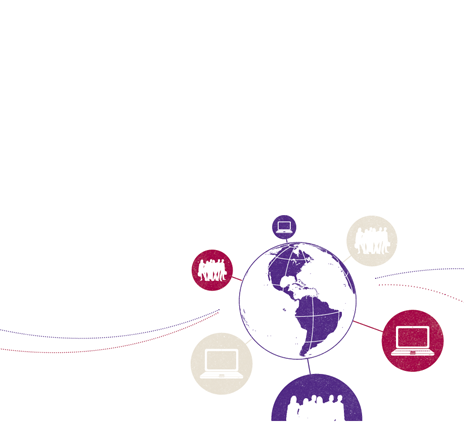-
Deals Services
The financial advisors of Grant Thornton offer customized solutions to their clients through personalized methods and services.
-
Technology
Our goal is to redefine how clients do business. With expertise in digital strategy, AI, data insights, and automation, we create personalized solutions to enhance productivity and drive innovation.
-
Strategy and Investments
The Strategy and Investments department supports businesses at strategic, operational and financial level.
-
Environmental, Social, Governance, Risk & Compliance
In the current business and regulatory environment, businesses aspire to meet today's requirements effectively, and to create value on sustainable terms.

-
Audit Services
The dedicated staff of Grant Thornton provide you with audit services such as financial statements for your business by using the HORIZON methodology.
-
Business Growth Advisory
At Grant Thornton, we recognize the need to align financial data with regulatory change, as well as the requirement for accurate financial data and consulting services.

-
Corporate Taxation
Grant Thornton's tax professionals offer Corporate Taxation Services to provide advice and solutions to any issues your business may have.
-
Corporate tax compliance
The Grant Thornton corporate tax compliance specilaists possess long experience in both multinationals and Greek companies in all business sectors.
-
International tax services
Grant Thornton supports all businesses operating at the European and international level with advice on international tax matters.
-
Transfer pricing
Grant Thornton offers comprehensive pricing policy planning and tax audit support for domestic, multinational and corporate tax executives.
-
Tax Controversy
Grant Thornton provides tax audit and risk services because tax disputes are unavoidable in numerous businesses.
-
Private Client Services
In case you are an individual, Grant Thornton provides services like tax returns, transfer of wealth to future generations and expatriate taxation services
-
Indirect taxes
Learn more from Grant Thornton about our services for indirect taxes such as real estate taxes, customs, VAT and stamp duties.
-
Tax restructuring
Grant Thornton provides tax advisory services to companies undergoing tax restructuring or a change in their strategic direction.
-
Diagnostic Tax Review
Diagnostic tax review is a tax service offered by Grant Thornton to assist your organisation in identifying and assessing potential tax exposures.
-
Tax efficient supply chain planning
Get informed about tax efficient supply chain planning and how to improve your company's productivity model by reorganizing your productivity activities.
-
Global mobility strategy
In a globalized world, businesses must work seamlessly across borders. Organizations operate in multiple countries and view international expansion as a strategic objective.

-
Accounting & Tax Compliance Services
Transferring non-core, yet important, activities outside the company and assigning them to specialists - external partners (Business Process Outsourcing) is the best practice applied by companies seeking to maximize efficiency and cut costs.
-
HR & Payroll services
Grant Thornton provides specialized services in payroll management and human resources management for any type of company.

-
Banking
Grant Thornton has a dedicated financial services team that provides banking services such as tax and non-bank accountancy advisory services.
-
Insurance
Here you will find all the financial assurance services that Grant Thornton can offer to your company and the pillars that are included.
-
Asset management
In Grant Thornton, asset management is a business approach that concerns assurance and control services and regulatory compliance services.
-
Central Government
Grant Thornton provides services to central government agencies to respond immediately and effectively to the challenges that have arisen.
-
Public Corporations and Organizations
Grant Thornton supports Public Enterprises and Organizations to evaluate their operations and upgrade their services to meet current requirements.
-
Local Government
Grant Thornton and its qualified employees offers audit and consulting services to support local government challenges.
-
NSRF Managing Authorities and Special Services
Grant Thornton's specialized team of executives provides Technical Assistance services for the programs managed by Special Services.
-
Public Health Services
Grant Thornton includes experienced professionals whose aim is to provide integrated services at all levels of the public health system.
-
Social Security Services
The public sector division of Grant Thornton provides high quality audit and advisory support services to members of the pension system.
-
Banking
Banking & Securities
-
Insurance
Insurance
-
Asset management
Asset management
-
Central Government
Grant Thornton provides services to central government agencies to respond immediately and effectively to the challenges that have arisen.
-
Public Corporations and Organizations
Grant Thornton supports Public Enterprises and Organizations to evaluate their operations and upgrade their services to meet current requirements.
-
Local Government
Grant Thornton and its qualified employees offers audit and consulting services to support local government challenges.
-
NSRF Managing Authorities and Special Services
NSRF Managing Authorities and Special Services
-
Public Health Services
Grant Thornton includes experienced professionals whose aim is to provide integrated services at all levels of the public health system.
-
Social Security Services
The public sector division of Grant Thornton provides high quality audit and advisory support services to members of the pension system.
-
Hotels & tourism services
Hotels & tourism services
-
Transportation
Transportation
-
Information Technology
Information Technology
-
Media
Media
-
Telecommunications
Telecommunications
There may be a storm brewing in some of the world’s largest economies as businesses come to terms with a skilled worker shortage. Are technology and mobility two options for businesses struggling to find talent?
In Canada, the US, UK, Japan and many other established economies, there is a deepening crisis in labour shortage. Businesses are increasingly struggling to attract the talent required to grow. According to Grant Thornton’s International Business Report, 40% of business leaders around the world cited a lack of skilled workers as a growth constraint. In the US, skills concerns saw an 8pp increase to their highest level ever at 38%. In China, concerns also rose 8pp, to 38%. And in Germany, there was a leap of 25pp to 74% in Q2 2018.
In many markets there isn’t a lot of excess capacity in the workplace. Economies are approaching full employment, so we’re starting to see skills gaps reappear as well as the emergence of new ones. Worldwide unemployment has fallen to 5.2%, the lowest level seen in almost 40 years, owing to factors such as lower wages and the gig economy.(i) While the global skills gap is expected to worsen, it’s already having an impact on businesses. Some are unable to grow because they cannot increase the volume of skills they need to expand capacity to produce more goods or services.
Several factors are driving this trend, including an ageing population and declining work-age populations in some countries. Meanwhile, rapidly advancing technology is putting businesses under increasing pressure to acquire the advanced digital skills required to support developments such as artificial intelligence (AI), automation and blockchain technology.
“It’s not just tech-specific roles; the ability to write and understand code is going to be more important in other disciplines as we already see in finance. I don’t think there is a single industry right now that doesn’t need more talent,” says Eric Nguyen, senior manager of Raymond Chabot Grant Thornton’s AI practice in Canada. “In Montreal alone, we see a huge demand for AI, and there is a lot of talent missing for engineering, software development and data science.”
See how your region views the skills shortage compared to others
Can technology narrow the skills gap?
Ironically, technology is both a cause and – and at least partially – a solution to the skills gap. The high demand for tech skills is a symptom of what technology can do for businesses. As the demand for skills rises so does investment in innovation and new business solutions. In Germany, for example, expectations for tech investment have increased by 5pp to 49%.
Michel Besner is general manager at Catallaxy, a subsidiary of Raymond Chabot Grant Thornton, providing blockchain solutions and support for businesses. He says: “Where technology optimises processes by simplifying tasks, demand for some types of jobs disappears.” Other technologies such as Robotic process automation (RPA) and machine learning are also enabling automation and scale opportunities that have not necessarily been there before.
Technology is limiting the impact of skills shortages across most business functions including finance, accounting, marketing and in the manufacturing and logistics sectors. The additional benefit is that while automation and technology remove some of the more basic tasks, existing employees have more capacity to add value in areas where machines can’t.
Automating decision-making processes reduces workloads
“AI is helping businesses now with the skills gap through automation of decision-making and helping human interactions with machines in daily operations,” says Eric. He recently worked with a company’s purchasing function whose team of 20 analysts make hundreds of decisions daily to determine the company’s correct inventory levels.
“With the integration of technology and AI they were able to predict the optimal level inventory for each of their products. They automated the decision-making for which supplier to call, which product, and how much to buy. This automation reduced the workload of the team, and they were able to work on other more complex tasks like looking for new products.”
Reacting to future technology is key to anticipating skills needs
However, for organisations considering digital processes as a response to issues such as skills shortages, the speed of deployment and return on investment is key. Emmanuelle Muller-Schrapp, finance and IT transformation partner at Grant Thornton France says: “The big challenge is to identify sustainable solutions that quickly add value at the right cost.”
While businesses can deploy technology to fill and support specific roles needed today, over the long-term they need an approach that is fully adaptable to emerging technology and its impact on skills.
Mark O’Sullivan, partner at Grant Thornton UK, says businesses should embrace technological advances. “We always say to people who are considering any digital project to try to ignore the scars of the past and to understand that the rules have changed around what a technology project looks like these days and it can be done much more quickly and cost-effectively.
Michel agrees. “Senior managers need to be more sensitive to changes in technology, some ignore the early signals, and when they react it’s too late.” He adds: “Companies also need to work more closely with universities and help them understand what skills need developing, so graduates enter business with the right skill sets.”
Sourcing new international talent
Many businesses are increasingly turning to international workers where much-needed skills are hard to come by locally.
AURAY Sourcing(ii), a subsidiary of Raymond Chabot Grant Thornton, was set up to provide a turnkey solution to support Canadian businesses in their recruiting and employee mobility needs, thereby addressing their specialised labour shortage. Pierre Lapointe, AURAY Sourcing’s Vice-President, says: “The economy is going at full speed right now, and to fuel that speed, we need to have growing production and therefore more workers.”
Canada is currently attractive to overseas workers. Businesses in Quebec, for example, are sourcing skills notably from French speaking countries as well from countries in Asia, Latin America and eastern Europe and see worker mobility as a valuable means of sustainable production and commercial activities.
However, recruiting in a different country is not without its challenges. Michael Monahan, assistant managing principal of human capital services, Grant Thornton US says: “If you’re working out how to recruit, retain and motivate people across the globe, the challenge of doing it when physically removed from the culture and country is even more immense.”
A strategic approach to recruiting international workers can limit delays
Using a worldwide network of recruiters, AURAY Sourcing focuses on the skills that are most needed locally and are therefore those whose visa applications have the best chance of being approved. But it is a lengthy procedure, and although there is a fast track for some skills, it can take up to eight months for a company that is unfamiliar with the process of recruiting overseas.
Growing businesses are looking for an end-to-end solution that manages recruitment and relocation, all the way through to integration. “This is a key component of recruiting international workers. Integration is essential because you want workers to stay,” says Pierre.
Traditional talent management still matters
While new solutions can be sought to meet demand, learning and development programmes remain critical to skills strategies, particularly as employees recognise the need for life-long learning and keeping their skills relevant.
Keely Woodley, head of human capital at Grant Thornton UK, agrees that education is key. “Providing training for people entering the workforce, as well as for those already there, will help close the skills gap at the medium to high level – and these are the types of jobs that really drive an economy forward."
People, processes and technology are the three areas that drive an organisation. If you align the decisions that are made around technology to your strategy, you’ll make better business decisions. Harnessing technology to develop your skills strategy, to educate existing employees and to find new sources of talent, will together help to address the skills deficit.
(i) Financial Times - Global unemployment hits lowest point for 4 decades
(ii) AURAY SourcingTM is a subsidiary of Raymond Chabot Grant Thornton. The service offering is backed by the expertise of its sister subsidiary, AURAY Capital whose team of professionals has over 25 years of experience in helping immigrant investors move from overseas to settle in Québec.



